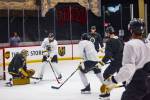The ironies of Dallas
The ironies of Dallas abound.
The police officers who were shot came on duty that evening to protect citizens participating in the Black Lives Matter protest, a demonstration against shootings by police officers in other cities.
In Dallas, the police department has reportedly been working very hard at keeping up good community relations.
The alleged sniper, a U.S. Army veteran whose military specialty was carpentry, had once sworn an oath to support and defend the Constitution against all enemies, foreign and domestic, before he became one of those enemies himself.
More guns, less crime? The police officers who were killed or wounded in the attack were armed. It didn’t stop them from being cut down by a single person wielding a rifle. (Police initially said multiple suspects were involved, but that report was corrected as of Friday afternoon.)
Rifles similar to the one seen in a blurry video of the shooter that aired repeatedly on TV were designed for use on the battlefield, to kill soldiers in wartime, not to slay police officers in a peaceful city.
The crime happened in Dallas, which this year will mark the 53rd anniversary of the assassination of President John F. Kennedy with a sniper rifle from an elevated position just a few blocks from where the ground is now stained with the blood of brave cops.
Attorney General Loretta E. Lynch, reacting to the shootings, said this, according to the New York Times: “After the events of this week, Americans across our country are feeling a sense of helplessness, of uncertainty and of fear. Now, these feelings are understandable and they are justified. But the answer must not be violence. The answer is never violence.”
But increasingly, it is. The country is witnessing a spike in violent crime, according to statistics maintained by Lynch’s own FBI. Violent crime rose by 1,7 percent in the first six months of 2015, the FBI found, with the murder rate increasing in cities across the country, including Las Vegas. The rise in the murder rate here has even caught the attention of FBI Director James Comey, who commented on it in May.
President Obama, on a foreign trip in Warsaw, Poland, added this: “We will learn more, undoubtedly, about the [suspect’s] twisted motivations, but let’s be clear: there are no possible justifications for these attacks or any violence towards law enforcement.”
Indeed. News of officer-involved shootings ricochets around the world in seconds now, thanks to social media. But so does misinformation, mistakes that cement themselves in the public consciousness before the full investigation is conducted, and all the facts are known. As a former police reporter in Las Vegas, I can safely report that there’s almost always more to the story than what you hear initially, and waiting for all the facts is essential before making a judgment.
Social media doesn’t pause for that, but the rest of us always should.
The Dallas Police Department’s officers, and those of the Dallas Area Rapid Transit Police Department, performed as heroes during the ambush. The Rev. Jeff Hood, one of the organizers of the protest, told reporters that he was speaking with a police sergeant when the shooting began. As Hood quickly retreated, the sergeant took off running — toward the sound of gunfire, Hood said.
No matter what else has happened in our country, we should all grieve for the fallen heroes of Dallas, who gave their lives in the service of people they’d never met, protesting a cause with which many of them surely disagreed, running toward the sound of bullets no matter the irony. We are better for their lives and service, and poorer now for their absence.
Steve Sebelius is a Review-Journal political columnist and co-host of “PoliticsNOW,” airing at 5:30 p.m. Sundays on 8NewsNow. Follow him on Twitter (@SteveSebelius) or reach him at 702-387-5276 or SSebelius@reviewjournal.com.























